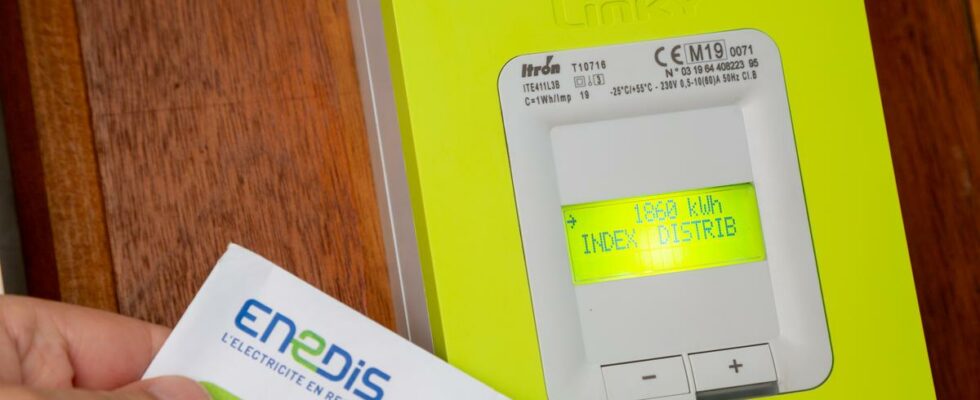Linky smart meters now equip more than 90% of households. Goodpics / stock.adobe.com
The current amount of commissioning costs is 13.94 euros and is set by the Energy Regulation Commission (CRE).
The French consumer should benefit from the Linky communicating electricity meter with a drop in commissioning costs in the event of moving into a new home, expected from August, Enedis assured Monday. “In the short term, the costs of operations that are remotely operated will decrease to be in line with the new costs allowed by Linky, i.e. a drastic reduction“Said the regulation director of Enedis, Christophe Gros, on the sidelines of the presentation to the press of the development plan for the French electricity network and the investments necessary for the company.
“This could be implemented by August“, he added. Distribution network manager, Enedis is a subsidiary of EDF. The amount of commissioning costs, set at 13.94 euros including tax today, does not fall within the prerogatives of Enedis. They are set by the Energy Regulation Commission (CRE), which must launch a consultation. “Everyone will agree that it must go down. Should it go down a lot or a lot, that’s the question“, clarified Christophe Gros.
Tested from 2010, Linky smart meters now equip more than 90% of homes, or electrical delivery points. There are still 3 million Linky meters to be deployed. Imposed by Brussels to facilitate differentiated pricing according to consumption, improve competition and promote energy savings, this box has sparked multiple controversies, in particular over its cost, criticized in 2018 by the Court of Auditors which judged the gains insufficient for the consumer.
Read alsoShould we abandon the objective of reducing the nuclear share of electricity production in France to 50%?
An ambitious investment plan of more than 5 billion euros per year
The total cost of the program was 3.9 billion euros, specifies AFP Enedis, which has devoted another 500 million euros of investment to it in 2021.The Linky project is generally finished“, Christophe Gros told the press. “We are now reaping all the benefits because precisely, it is a brick of this intelligent network which makes it possible to develop self-consumption, to have a much better visibility on the network, on the zones affected by climatic hazards“.
By 2032, Enedis plans an ambitious investment plan of more than 5 billion euros per year, i.e. 75% more than the annual average of the last forty years, in particular to install charging infrastructure for electric vehicles. and connect new wind or solar farms. The tax included in the invoices for the use of the network (it represents approximately 30% of the invoice) should consequently increase: Enedis speaks of a “increase controlled over time, lower or limited to inflation“.
SEE ALSO – Energy: “It would be completely unconscious to bet on a 100% renewable mix”, explains Elsa Bembaron
